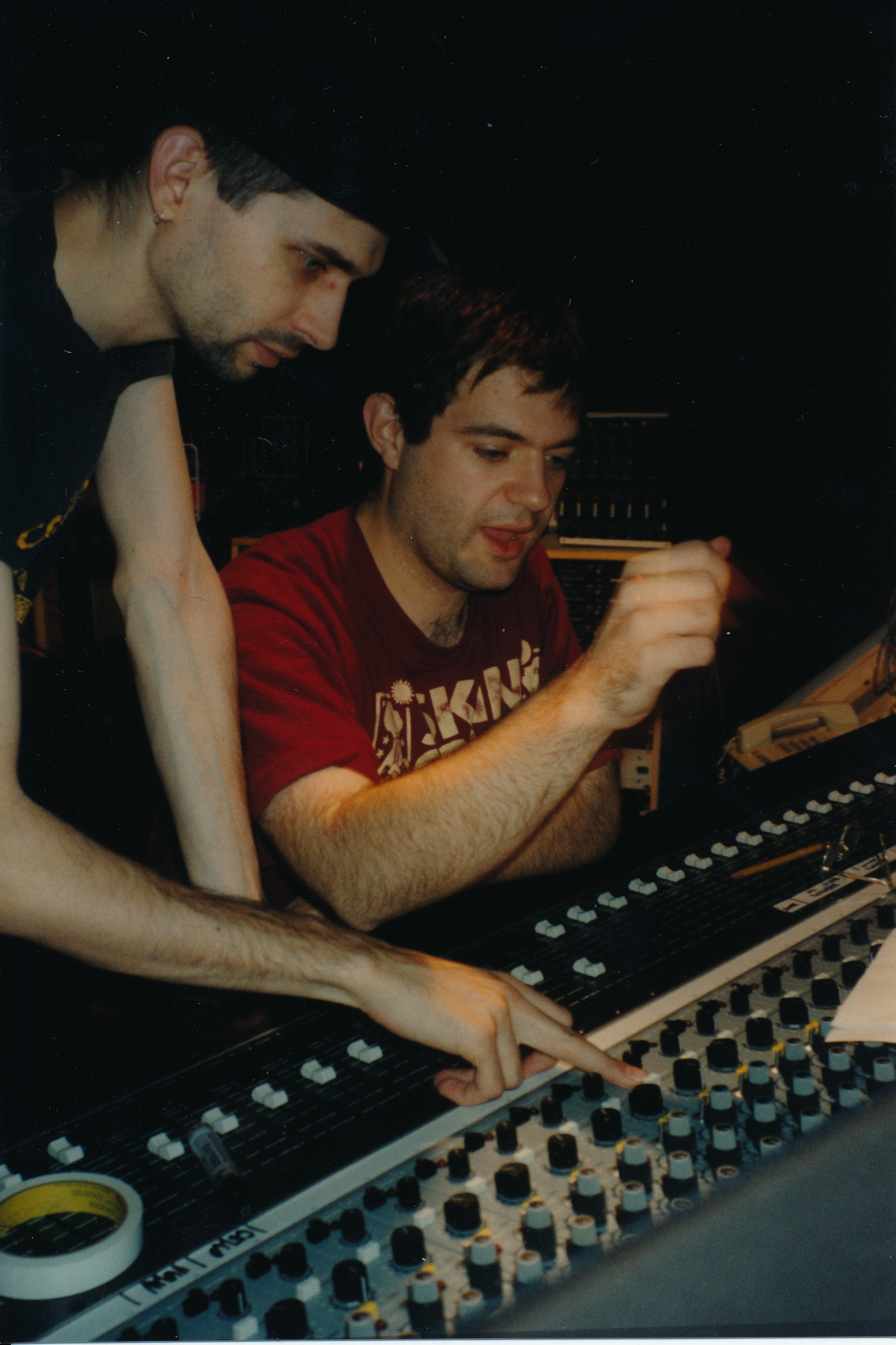
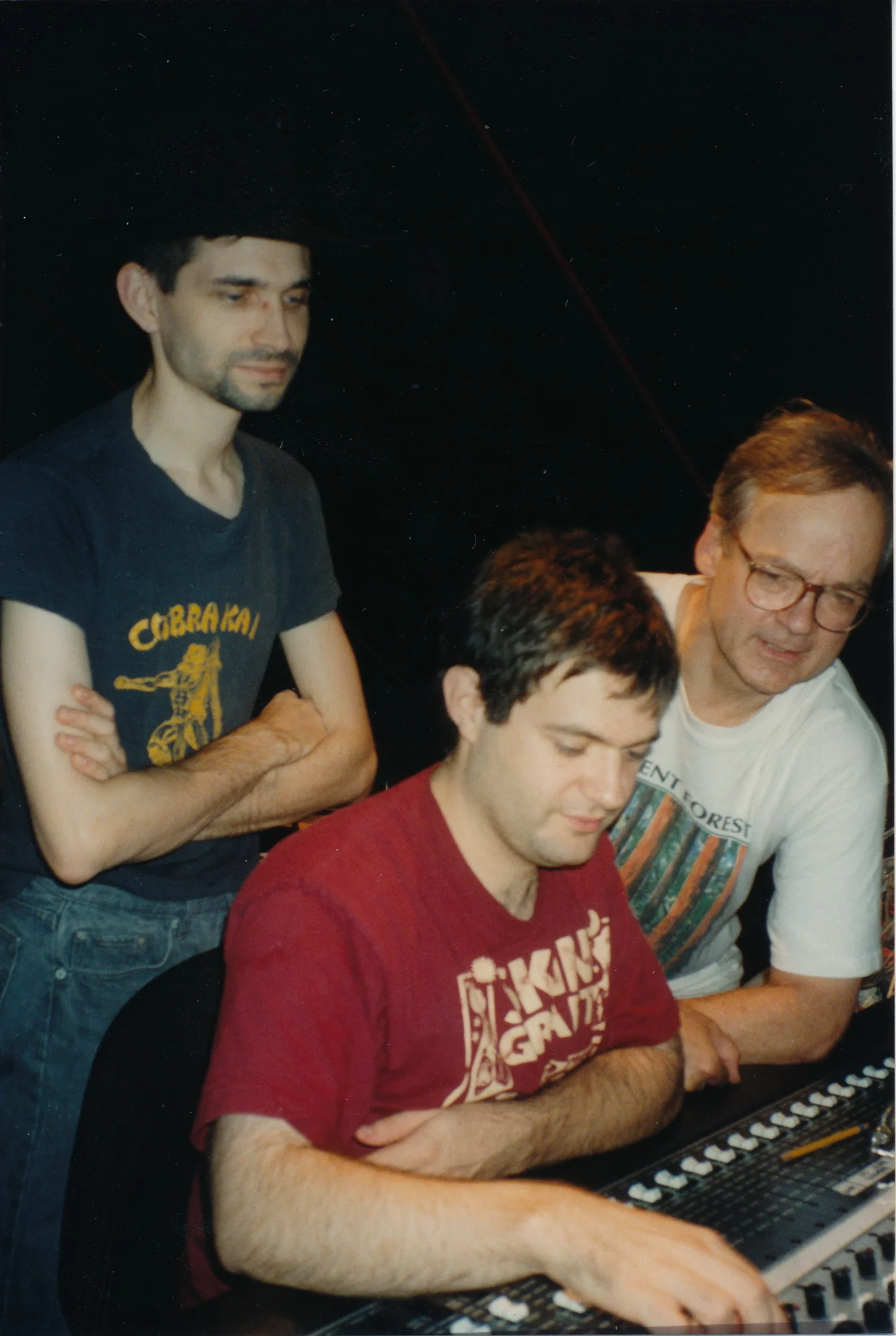
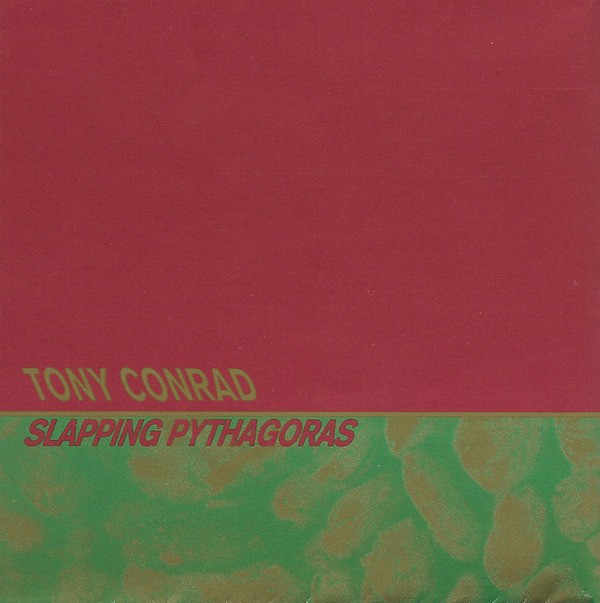

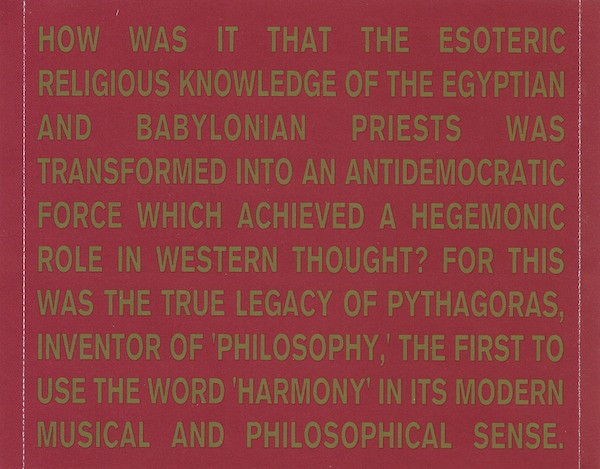
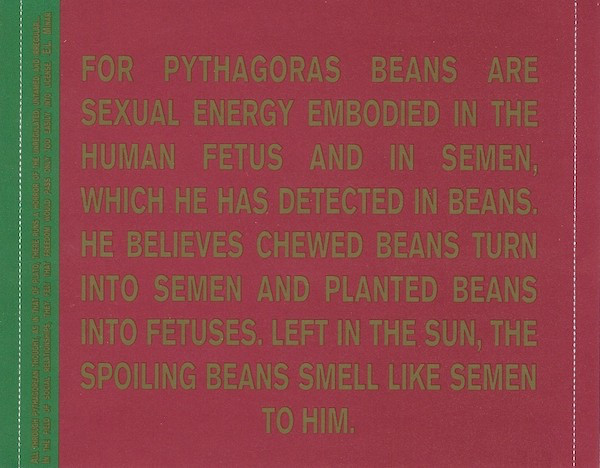
Tony Conrad
Slapping Pythagoras
1995
Table of the Elements
[Vanadium] TOE-CD-23
Compact disc, poster, obi
Tony Conrad is one of the most compelling figures in 20th century music, but it was this 1995 Table of the Elements release that defiantly established his relevance and influence for a new generation of listeners.
Conrad's previously obscure past is now well documented. In 1962 he co-founded the groundbreaking minimalist ensemble informally known as the Dream Syndicate. Wielding a drone both aggressively confrontational and subtly mesmerizing, he and his collaborators—including La Monte Young, Marian Zazeela, John Cale and Angus MacLise—created some of the most revolutionary music of that—or any—decade. A chasm continues to widen between Conrad/Cale and Young/Zazeela and their starkly differentiated philosophies, as Young refuses any and all access to their extensive and collective archive of recordings.
Following the dissolution of the group in 1966, Conrad played a pivotal role in the formation of the Velvet Underground, before refocusing his efforts on experimental film and video. However, he did briefly and momentously reappeared to jam with German group Faust on the notorious 1972 LP, Outside The Dream Syndicate (also available as a double-CD on Table of the Elements). For another two decades, this remained his only available studio recording.
In 1994, Table of the Elements devised a daring approach to return Conrad to the recording studio and afford him an opportunity direct a new ensemble gathered from Chicago’s burgeoning post-rock scene. Over the years, Conrad had repeatedly groused that Faust’s producer Uwe Nettlebeck had mixed him soft on Outside the Dream Syndicate, which in Conrad’s words, made him “sound like a hippie.” With some prescient determination, the label arranged for Conrad to record at Electrical Audio, with engineer Steve Albini.
Albini had just rattled the music industry by refusing to dilute his raw, bellicose mix for Nirvana’s In Utero: His was a studious and methodical close-mic’ed attack that eschewed commerce for aural iconoclasm. While it freaked out the suits in Los Angeles, this sensorial vérité was delightfully attuned to Tony Conrad’s personal aesthetic. The sessions, piloted with crackerjack brilliance by producer Jim O’Rourke, finally captured with harrowing accuracy the Scrape und Drang of Conrad’s relentless and epic performance idiom.
The ultimate result was 1995’s micro- and macroscopic landmark, Slapping Pythagoras. It is as exhilarating, vigorous and downright antisocial as any great rock album—which is exactly what it is. Slapping Pythagoras reconfigures the lost dream music, addresses nearly thirty years of silence, and confirms Conrad as a giant in the soundscape of American music.
“In the beginning there was the Drone, the primordial, mind-splitting hum generated by the strings, keyboards and revolutionary lost-chord Zeitgeist of 60's group the Dream Syndicate ... Slapping Pythagoras is the sound of stasis in excelsis, the fluid microtonal Om of Conrad's violin resolving into deep pools of rich, alien harmony."
Rolling Stone
"Tony Conrad is a pioneer, as seminal in his way to American music as Johnny Cash or Captain Beefheart or Ornette Coleman, one of those really savvy old guys whom all the kids want to emulate because their ideas, their style are electric and new and somehow indivisible."
Atlanta Journal-Constitution
“Conrad invents a new musical language ... unbearably intense and gloriously ecstatic."
The Wire


